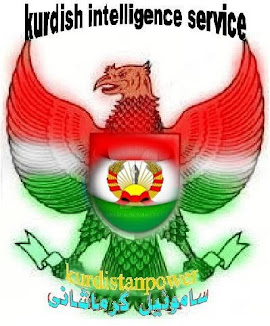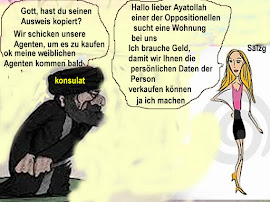Mosul, the second largest city in Iraq, is not as strategic as Kobani?
strategic as Kobani. Nor is Aleppo while the Bashar Assad regime kills
hundreds of civilians there.
hundreds of civilians there.
It is not only Mosul or Aleppo though that
are forsaken in this supposedly smart strategy. About one third of Iraq
and Syria are under Islamic State of Iraq and al-Sham (ISIS) control and
have been given up in the rush to liberate the now legendary town of
Kobani - a town whose name until a few weeks ago no one had even heard
of but has suddenly become the frontline in the fight against ISIS.
In the meantime, Aleppo in Syria, a city of more than 3 million, is
about to fall to the Assad regime. While the world's attention has been
focused on Kobani, Mr. Assad is virtually carrying out a massacre with
barrel bombs and artillery in Aleppo, Homs and other cities. Will arms
be airdropped to Aleppo as well? And if not, why? One cannot help but
ask: how is it that Kobani has suddenly gained such "strategic
significance" with global attention when U.S. Secretary of State John
Kerry said just two weeks ago that preventing Kobani from falling to
ISIS is not a strategic priority for the U.S.? How has Kobani become the
center stage in the fight against ISIS while the fact that one third of
Iraq and Syria is under ISIS control is not even being discussed?
According to officials, only several dozen civilians have died in
Kobani. The reason why there has not been any massacre in Kobani is
because Turkey practically evacuated the city when it began taking in
its residents in the face of the ISIS advance. In addition, the U.S.-led
airstrikes played a major role in stopping ISIS's advances. This is
commendable and the airstrikes should continue to hit ISIS targets in
Syria and Iraq. But the hype around Kobani raises a number of questions
about the strategy employed against ISIS. One of the reasons why ISIS
rose to prominence has been the weakening of the Free Syrian Army (FSA)
in Syria. The other well-known factor is the disastrous policies of the
previous Iraqi government of Nouri al-Maliki that prepared the ground
for the advance of ISIS into the Sunni-populated areas of Iraq.
The FSA has been rendered ineffective because of the failure of the
international community to provide quality aid to it on the one hand and
the fierce attacks by the Assad regime and ISIS on the other. The Assad
regime supported ISIS to divide and weaken the FSA. In this battle, the
Democratic Union Party's (PYD) People's Protection Units (YPG), the
Kurdish group fighting in Kobani along with other Syrian groups, has
never joined the battle against the Assad regime. On the contrary, it
developed and still maintains shady relations with the Assad regime and
with the PKK. Its primary objective is not to save Kobani but to
maintain its control over it. That's why they are against any large
number of peshmerga soldiers coming to their aid in Kobani from the
Kurdistan Regional Government (KRG) - a move that Turkey is currently
facilitating. Those who are providing weapons do not bother to ask the
PYD why it rejected the offer of peshmerga forces to fight alongside
them. The PYD is also resisting the offer by the FSA to help them defend
Kobani for the same reason - control. The U.S.-led coalition is now
providing weapons to groups in Kobani, which it never provided to the
FSA in its defense of Aleppo, Hama, Homs or other cities. The Germans,
French, British and others are rushing to provide weapons, training and
advice to Kurds in Iraq and Syria. Political pundits are talking about
the perfect time to establish a Kurdish state and taking PKK out of the
list of terrorist organizations in Europe. How this is part of a smart
strategy against ISIS is a mystery.
Turks and Kurds are natural allies. Ankara has initiated a major peace
process with its Kurdish citizens who have been enjoying more political
representation, economic development and cultural rights under former
prime minister and current president, Recep Tayyip Erdogan's policies
over the last decade. Turkey has excellent relations with Iraqi Kurds.
It has no problems with Syrian Kurds. It has been engaging with the PYD
and encouraging it to severe its relations with the PKK and Assad
regime. The problem lies somewhere else.
ISIS has become the perfect tool to realize anyone's wild dreams about
the Middle East. ISIS is now the darling of contemporary Lawrences of
Arabia. Western political commentators and reporters have so much
expertise and confidence that they are ready to redraw the map of the
Middle East just like the Sykes-Picot Agreement did a century ago. While
they believe in the hype they themselves created, ISIS maintains
control over large areas of Iraq and Syria. No one is asking why Mosul
is still under ISIS control and why the new Iraqi government is not
doing anything to take Iraq's second largest city back. This strategy is
flawed. There is no logical answer to the question of why ISIS is
attacked in Kobani but not in Mosul, Raqqa and other key cities in Iraq
and Syria. No one wants to talk about how Syria's brutal and protracted
war prepared the ground for the rise of ISIS in the first place. Instead
of answering these questions, pundits turn to Turkey-bashing because
again it is a convenient tool to deflect attention from the perils of a
short-sighted strategy.
By Ibrahim Kalin.
http://www.dailysabah.com/columns/ibrahim-kalin/2014/10/25/after-kobani
are forsaken in this supposedly smart strategy. About one third of Iraq
and Syria are under Islamic State of Iraq and al-Sham (ISIS) control and
have been given up in the rush to liberate the now legendary town of
Kobani - a town whose name until a few weeks ago no one had even heard
of but has suddenly become the frontline in the fight against ISIS.
In the meantime, Aleppo in Syria, a city of more than 3 million, is
about to fall to the Assad regime. While the world's attention has been
focused on Kobani, Mr. Assad is virtually carrying out a massacre with
barrel bombs and artillery in Aleppo, Homs and other cities. Will arms
be airdropped to Aleppo as well? And if not, why? One cannot help but
ask: how is it that Kobani has suddenly gained such "strategic
significance" with global attention when U.S. Secretary of State John
Kerry said just two weeks ago that preventing Kobani from falling to
ISIS is not a strategic priority for the U.S.? How has Kobani become the
center stage in the fight against ISIS while the fact that one third of
Iraq and Syria is under ISIS control is not even being discussed?
According to officials, only several dozen civilians have died in
Kobani. The reason why there has not been any massacre in Kobani is
because Turkey practically evacuated the city when it began taking in
its residents in the face of the ISIS advance. In addition, the U.S.-led
airstrikes played a major role in stopping ISIS's advances. This is
commendable and the airstrikes should continue to hit ISIS targets in
Syria and Iraq. But the hype around Kobani raises a number of questions
about the strategy employed against ISIS. One of the reasons why ISIS
rose to prominence has been the weakening of the Free Syrian Army (FSA)
in Syria. The other well-known factor is the disastrous policies of the
previous Iraqi government of Nouri al-Maliki that prepared the ground
for the advance of ISIS into the Sunni-populated areas of Iraq.
The FSA has been rendered ineffective because of the failure of the
international community to provide quality aid to it on the one hand and
the fierce attacks by the Assad regime and ISIS on the other. The Assad
regime supported ISIS to divide and weaken the FSA. In this battle, the
Democratic Union Party's (PYD) People's Protection Units (YPG), the
Kurdish group fighting in Kobani along with other Syrian groups, has
never joined the battle against the Assad regime. On the contrary, it
developed and still maintains shady relations with the Assad regime and
with the PKK. Its primary objective is not to save Kobani but to
maintain its control over it. That's why they are against any large
number of peshmerga soldiers coming to their aid in Kobani from the
Kurdistan Regional Government (KRG) - a move that Turkey is currently
facilitating. Those who are providing weapons do not bother to ask the
PYD why it rejected the offer of peshmerga forces to fight alongside
them. The PYD is also resisting the offer by the FSA to help them defend
Kobani for the same reason - control. The U.S.-led coalition is now
providing weapons to groups in Kobani, which it never provided to the
FSA in its defense of Aleppo, Hama, Homs or other cities. The Germans,
French, British and others are rushing to provide weapons, training and
advice to Kurds in Iraq and Syria. Political pundits are talking about
the perfect time to establish a Kurdish state and taking PKK out of the
list of terrorist organizations in Europe. How this is part of a smart
strategy against ISIS is a mystery.
Turks and Kurds are natural allies. Ankara has initiated a major peace
process with its Kurdish citizens who have been enjoying more political
representation, economic development and cultural rights under former
prime minister and current president, Recep Tayyip Erdogan's policies
over the last decade. Turkey has excellent relations with Iraqi Kurds.
It has no problems with Syrian Kurds. It has been engaging with the PYD
and encouraging it to severe its relations with the PKK and Assad
regime. The problem lies somewhere else.
ISIS has become the perfect tool to realize anyone's wild dreams about
the Middle East. ISIS is now the darling of contemporary Lawrences of
Arabia. Western political commentators and reporters have so much
expertise and confidence that they are ready to redraw the map of the
Middle East just like the Sykes-Picot Agreement did a century ago. While
they believe in the hype they themselves created, ISIS maintains
control over large areas of Iraq and Syria. No one is asking why Mosul
is still under ISIS control and why the new Iraqi government is not
doing anything to take Iraq's second largest city back. This strategy is
flawed. There is no logical answer to the question of why ISIS is
attacked in Kobani but not in Mosul, Raqqa and other key cities in Iraq
and Syria. No one wants to talk about how Syria's brutal and protracted
war prepared the ground for the rise of ISIS in the first place. Instead
of answering these questions, pundits turn to Turkey-bashing because
again it is a convenient tool to deflect attention from the perils of a
short-sighted strategy.
By Ibrahim Kalin.
http://www.dailysabah.com/columns/ibrahim-kalin/2014/10/25/after-kobani



















.jpg)










.jpeg)



























Inga kommentarer:
Skicka en kommentar